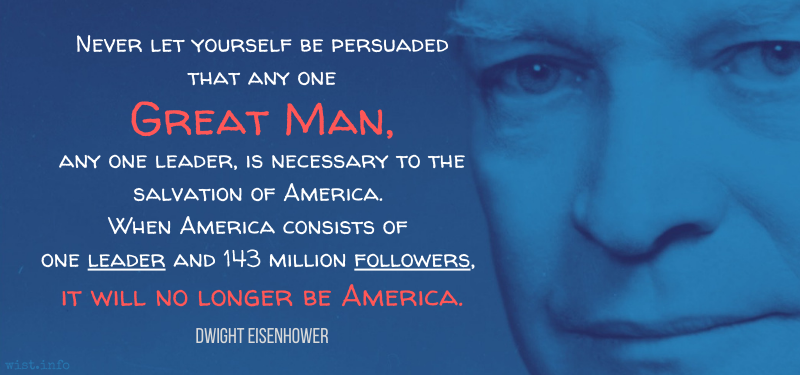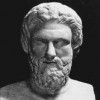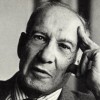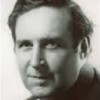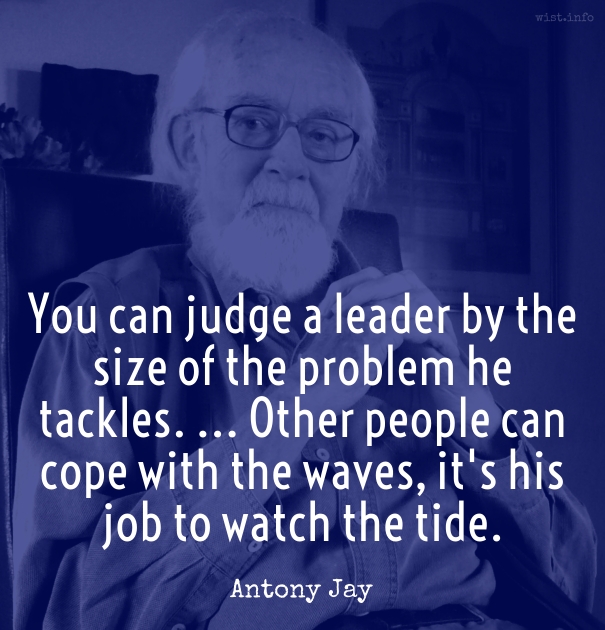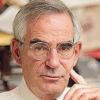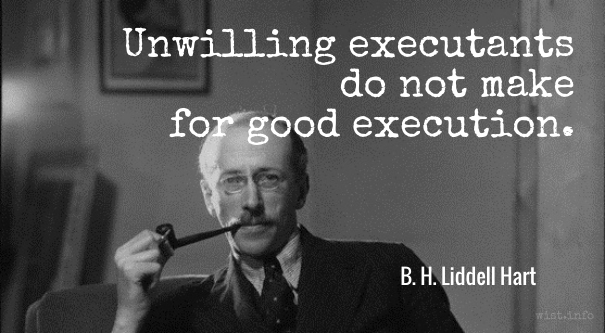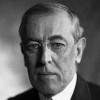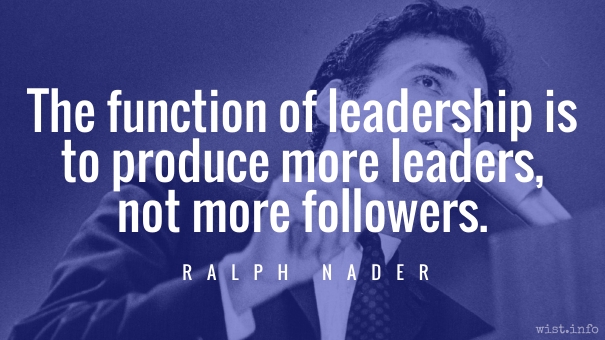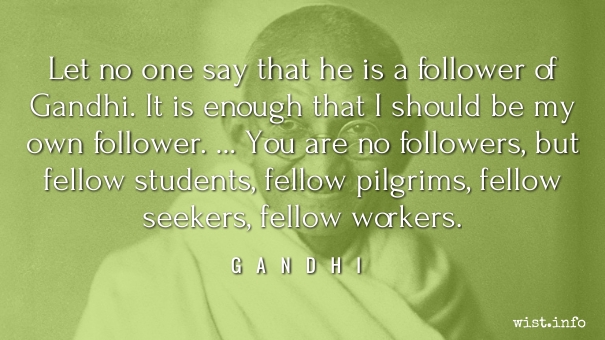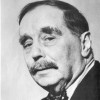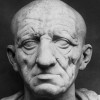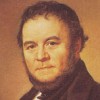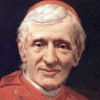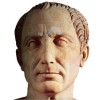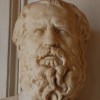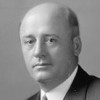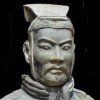Nor need we be surprised that men so often embrace almost any doctrines, if they are proclaimed with a voice of absolute assurance. In a universe that we do not understand, but with which we must in one way or another somehow manage to deal; and aware of the conflicting desires that clamorously beset us, between which we must choose, and which we must therefore manage to weigh, we turn in our bewilderment to those who tell us that they have found a path out of the thickets and possess the scales by which to appraise our needs. Over and over again such prophets succeed in converting us to unquestioning acceptance; there is scarcely a monstrous belief that has not had its day and its passionate adherents, so eager are we for safe footholds in our dubious course.
Learned Hand (1872-1961) American jurist
Speech (1955-01-29), “A Fanfare for Prometheus,” American Jewish Committee annual dinner, New York City
(Source)
Quotations about:
leader
Note not all quotations have been tagged, so Search may find additional quotes on this topic.
Fascism, Nazism and Stalinism have in common that they offered the atomized individual a new refuge and security. These systems are the culmination of alienation. The individual is made to feel powerless and insignificant, but taught to project all of his human powers into the figure of the leader, the state, the “fatherland,” to whom he has to submit and whom he has to worship. He escapes from freedom and into a new idolatry. All the achievements of individuality and reason, from the late Middle Ages to the nineteenth century are sacrificed on the altars of the new idols.
Erich Fromm (1900-1980) American psychoanalyst and social philosopher
The Sane Society, ch. 7 (1956)
(Source)
Never let yourself be persuaded that any one Great Man, any one leader, is necessary to the salvation of America. When America consists of one leader and 143,000,000 followers, it will no longer be America. Truly American leadership is not of any one man. It is of multitudes of men — and women.
Dwight David Eisenhower (1890-1969) American general, US President (1953-61)
“An Open Letter to America’s Students,” Reader’s Digest (1948-10)
(Source)
Quoted in different locations with various numbers for the US population. The letter was written while Eisenhower was President of Columbia University.
[Fascism] imagines the masses not as a pluralistic citizenry but as a primal horde whose power can be awakened by playing upon atavistic feelings of hatred and belonging. Its chosen leader must exhibit strength: his refusal to compromise and readiness to attack are seen as signs of tough-mindedness, while any concern for constitutionality or the rule of law are disdained as signs of weakness. The most powerful myth, however, is that of the embattled collective. Critics are branded as traitors, while those who do not fit the criteria for inclusion are vilified as outsiders, terrorists, and criminals.
Peter E, Gordon (b. 1966) American intellectual historian
“Why Historical Analogy Matters,” New York Review of Books (7 Jan 2020)
(Source)
Choose your leaders
with wisdom and forethought.
To be led by a coward
is to be controlled
by all that the coward fears.
To be led by a fool
is to be led
by the opportunists
who control the fool.
To be led by a thief
is to offer up
your most precious treasures
to be stolen.
To be led by a liar
is to ask
to be lied to.
To be led by a tyrant
is to sell yourself
and those you love
into slavery.
If political loyalty is signaled by believing a true story, anyone can fake it. But believing ridiculous and outlandish stories exacts greater cost, and is therefore a better signal of loyalty. If you believe your leader only when he or she tells the truth, what does that prove? In contrast, if you believe your leader even when he or she builds castles in the air, that’s loyalty! Shrewd leaders might sometimes deliberately say nonsensical things as a way to distinguish reliable devotees from fair-weather supporters.
Yuval Noah Harari (b. 1976) Israeli public intellectual, historian, academic, writer [יובל נח הררי]
“Why Fiction Trumps Truth,” New York Times (24 May 2019)
(Source)
The final mode is misplaced faith. It involves the sort of self-deifying claims the president made when he said that “I alone can solve it” or “I am your voice.” When faith descends from heaven to earth in this way, no room remains for the small truths of our individual discernment and experience. What terrified Klemperer was the way that this transition seemed permanent. Once truth had become oracular rather than factual, evidence was irrelevant. At the end of the war a worker told Klemperer that “understanding is useless, you have to have faith. I believe in the Führer.”
Timothy Snyder (b. 1969) American historian, author
On Tyranny: Twenty Lessons from the Twentieth Century (2017)
(Source)
Such closet politicians never fail to assign the deepest motives for the most trifling actions; instead of often ascribing the greatest actions to the most trifling causes, in which they would be much seldomer mistaken. They read and write of kings, heroes, and statesmen, as never doing any thing but upon the deepest principles of sound policy. But those who see and observe kings, heroes and statesmen, discover that they have headaches, indigestions, humours, and passions, just like other people; every one of which, in their turns, determine their wills, in defiance of their reason.
Lord Chesterfield (1694-1773) English statesman, wit [Philip Dormer Stanhope]
Letter to his son, #205 (5 Dec 1749)
(Source)
ORESTES: A terrible thing is the mob, whenever it has villains to lead it.
PYLADES: But with honest leaders its counsels are always honest.[Ὀρέστης: δεινὸν οἱ πολλοί, κακούργους ὅταν ἔχωσι προστάτας.
Πυλάδης: ἀλλ᾽ ὅταν χρηστοὺς λάβωσι, χρηστὰ βουλεύουσ᾽ ἀεί.]Euripides (485?-406? BC) Greek tragic dramatist
Orestes, ll. 772-773 [Orestes] (408 BC) [tr. Coleridge (1938)]
(Source)
Original Greek. Alt. trans.:
ORESTES: Ah, my friend! When mobs have rotten leaders they are likely to do all sorts of nasty things.
PYLADES: It's a very different story when their leaders are wise, though ....
[tr. Theodoridis (2010)]
ORESTES: The mob is frightening when their leaders are criminal.
PYLADES: But when they have good one, their decisions are good.
[tr. Luschnig (2013)]
ORESTES:
The mob is nasty, when it has leaders
bent on doing wrong.
PYLADES:
But when it’s controlled
by decent men, the decisions they make
are always good.
[tr. Johnston (2020), ll. 938-940]
The masses are terrible whenever they have scoundrels as leaders.
[tr. @sententiq (2020)]
For the man who rules efficiently must have obeyed others in the past, and the man who obeys dutifully appears fit at some later time to be a ruler.
[Nam et qui bene imperat, paruerit aliquando necesse est, et qui modeste paret, videtur qui aliquando imperet dignus esse.]
Marcus Tullius Cicero (106-43 BC) Roman orator, statesman, philosopher
De Legibus [On the Laws], Book 3, ch. 2 / sec. 5 (3.2/3.5) [Marcus] (c. 51 BC) [tr. Keyes (1928)]
(Source)
(Source (Latin)). Alternate translations:
For in order to command well, we should know how to submit; and he who submits with a good grace will some time become worthy of commanding.
[tr. Barham (1842)]
For he who commands well, must at some time or other have obeyed; and he who obeys with modesty appears worthy of some day or other being allowed to command.
[tr. Barham/Yonge (1878)]
A man who exercises power effectively will at some stage have to obey others, and one who quietly executes orders shows that he deserves, eventually, to wield power himself.
[tr. Rudd (1998)]
For the good commander must necessarily at some time be obedient, and the person who is properly obedient seems like someone worthy at some time of commanding.
[tr. Zetzel (1999)]
For it is necessary that he who commands well should obey at some time, and he who temperately obeys seems to be worthy of commanding at some time.
[tr. Fott (2013)]
His view of war — and he had seen a great deal of it — was that a general made as many blunders as he fought battles, but, by the grace of the gods, the opposing generals’ blunders were sometimes worse.
Aubrey Menen (1912-1989) British writer, novelist, satirist, theatre critic
A Conspiracy of Women (1966)
(Source)
See Tartakower.
A revolution requires of its leaders a record of unbroken infallibility; if they do not possess it, they are expected to invent it.
Murray Kempton (1917-1997) American journalist.
Part of Our Time: Some Ruins & Monuments of the Thirties, ch. 3 (1955)
(Source)
The head of the fish is the first part to smell.
Ἰχθὺς ἐκ τῆς κεφαλῆς ὄζειν ἄρχεται: ἐπὶ τῶν ἐπιστάτας φαύλους ἐχόντων
“The head of a fish begins to stink first.” Used of bad rulers, whose contagion poisons the rest of the people. The expression seems to derive from the language of common people.
[Piscis primum a capite foetet … Piscis a capite primum incipit putere. Dictum in malos principes, quorum contagione reliquum vulgus inficitur. Apparet ab idiotarum vulgo sumptum.]
Michael Apostolius (c. 1420 - c. 1480) Greek teacher, writer, copyist [Apostolius Paroemiographus, i.e., Apostolius the proverb-writer]
Apostolius 9.18.12, Tilley F 304
(Source)
From Erasmus, Adages, Book 4, ch. 2, #97 [tr. Drysdall], who cites Apostolius, who appears to have been the first to record the proverb. Alt. trans.:
- "Fish start to stink at the top: [this is a proverb] applied to people who have scoundrels for leaders." [tr. @sentantiq]
- "The fish always stinks from the head downwards: The freshness of a dead fish can be judged from the condition of its head. Thus, when the responsible part (as the leaders of a country, etc.) is rotten, the rest will soon follow. ἰχθὺς ἐκ τῆς κεφαλῆς ὄζειν ἄρχεται, a fish begins to stink from the head." -- Jennifer Speake, ed., Oxford Dictionary of Proverbs (2015) [Source]
DEMOSTHENES: A demagogue must be neither an educated nor an honest man; he has to be an ignoramus and a rogue.
Just as every conviction begins as a whim so does every emancipator serve his apprenticeship as a crank. A fanatic is a great leader who is just entering the room.
God offers to every mind its choice between truth and repose. Take which you please — you can never have both.
Ralph Waldo Emerson (1803-1882) American essayist, lecturer, poet
“Intellect,” Essays: First Series (1841)
(Source)
You can judge a leader by the size of the problem he tackles — people nearly always pick a problem their own size, and ignore or leave to others the bigger or smaller ones. The chief executive should be thinking about the long-term changes which will bring growth or decay to different parts of the enterprise, not fussing over day-to-day problems. Other people can cope with the waves, it’s his job to watch the tide.
As long as I am back in my military life for a second, I should like to observe one thing about leadership that one of the great has said — Napoleon. He said, the great leader, the genius in leadership, is the man who can do the average thing when everybody else is going crazy.
I do not believe that any man can lead who does not act, whether it be consciously or unconsciously, under the impulse of a profound sympathy with those whom he leads — a sympathy which is insight — an insight which is of the heart rather than of the intellect.
Woodrow Wilson (1856-1924) US President (1913-20), educator, political scientist
“Leaders of Men,” Commencement Address, University of Tennessee, Knoxville (17 Jun 1890)
(Source)
The leader holds his position purely because he is able to appeal to the conscience and to the reason of those who support him, and the boss holds his position because he appeals to fear of punishment and hope of reward. The leader works in the open, and the boss in covert. The leader leads, and the boss drives.
The function of leadership is to produce more leaders, not more followers.
Ralph Nader (b. 1934) American attorney, author, lecturer, political activist
Time Leadership Conference, Washington, DC (Sep 1976)
(Source)
In "Leadership: The Biggest Issue," Time (8 Nov 1976).
Every man of action has a strong dose of egotism, pride, hardness, and cunning. But all those things will be forgiven him, indeed, they will be regarded as high qualities, if he can make of them the means to achieve great ends.
Leaders I feel should guide as far as they can — and then vanish. Their ashes should not choke the fire they have lit.
H.G. Wells (1866-1946) British writer [Herbert George Wells]
Experiment in Autobiography, ch. 9, sec. 2 “The Samurai — In Utopia and in the Fabian Society (1905-1909)” (1934)
(Source)
Variant: "Leaders should lead as far as they can and then vanish. Their ashes should not choke the fire they have lit."
The job of getting people really wanting to do something is the essence of leadership. And one of the things a leader needs occasionally is the inspiration he gets from the people he leads. The old tactical textbooks say that the commander always visits his troops to inspire them to fight. I for one soon discovered that one of the reasons for my visiting the front lines was to get inspiration from the young American soldier. I went back to my job ashamed of my own occasional resentments or discouragements, which I probably — at least I hope I concealed them.
There are leaders and there are those who lead. Leaders hold a position of power or authority, but those who lead inspire us. Whether they’re individuals or organizations, we follow those who lead, not because we have to, but because we want to. We follow those who lead, not for them, but for ourselves.
Simon Sinek (b. 1973) British-American author and motivational speaker
“How great leaders inspire action,” TED Talk (Sep 2009)
(Source)
The shepherd always tries to persuade the sheep that their interests and his own are the same.
Leaders are people who do the right thing; managers are people who do things right. Both roles are critical, but they differ profoundly. I often observe people in top positions doing the wrong things well.
Lead, kindly Light, amid the encircling gloom,
Lead Thou me on;
The night is dark, and I am far from home;
Lead Thou me on!
Keep Thou my feet; I do not ask to see
The distant scene; — one step enough for me.John Henry Newman (1801-1890) English prelate, Catholic Cardinal, theologian
“Lead, Kindly Light” (16 Jun 1833)
(Source)
It seems to me that America’s objective today should be to try to make herself the best possible mirror of democracy that she can. The people of the world can see what happens here. They watch us to see what we are going to do and how well we can do it. We are giving them the only possible picture of democracy that we can: the picture as it works in actual practice. This is the only way other peoples can see for themselves how it works; and can determine for themselves whether this thing is good in itself, whether it is better than they have, better than what other political and economic systems offer them.
Eleanor Roosevelt (1884-1962) First Lady of the US (1933-45), politician, diplomat, activist
The Autobiography of Eleanor Roosevelt, ch. 43 “Milestones” (1961)
(Source)
Don’t worry too much about the sailors’ seeing you get a little worried sometimes, one of his chief petty officers had told Geary when he was a lieutenant. That just tells them you’re smart enough to know when to worry. Don’t look too worried, or they’ll think you don’t know what to do. And, for the love of your ancestors, never look like you’re never worried. That’ll make the crew think you’re either an idiot or a fool. They know officers are human, and no human with half a brain is never worried. But as long as you seem to know what you’re doing, they’ll follow you.
Washington acted as the representative of the needs, the ideas, the enlightened men, the opinions of his age; he supported, not thwarted, the stirrings of intellect; he desired only what he had to desire, the very thing to which he had been called: from which derives the coherence and longevity of his work. That man who struck few blows because he kept things in proportion has merged his existence with that of his country: his glory is the heritage of civilisation; his fame has risen like one of those public sanctuaries where a fecund and inexhaustible spring flows.
The actions of those who hold great power, and pass their lives in a lofty station, are known to all the world. So it comes to pass that in the highest position there is the least freedom of action.
Any man who attains a high place among you, from the President downwards, may date his downfall from that moment; for any printed lie that any notorious villain pens, although it militate directly against the character and conduct of a life, appeals at once to your distrust, and is believed. You will strain at a gnat in the way of trustfulness and confidence, however fairly won and well deserved; but you will swallow a whole caravan of camels, if they be laden with unworthy doubts and mean suspicions. Is this well, think you, or likely to elevate the character of the governors or the governed among you?
Out of every one hundred men, ten shouldn’t even be there, eighty are just targets, nine are the real fighters, and we are lucky to have them, for they make the battle. Ah, but the one, one is a warrior, and he will bring the others back.
What higher obligation does a President have than to explain his intentions to the people and persuade them that the direction he wishes to go is right? Politics in a democracy is, at the end, an educational process.
We are not a cynical people. The will to believe lingers on. We like to think that heroes can emerge from obscurity, as they sometimes do; that elections do matter, even though the process is at least part hokum; that through politics we can change our society and maybe even find a cause to believe in.
To do a job effectively, one must set priorities. Too many people let their “in” basket set the priorities. On any given day, unimportant but interesting trivia pass through an office; one must not permit these to monopolize his time. The human tendency is to while away time with unimportant matters that do not require mental effort or energy. Since they can be easily resolved, they give a false sense of accomplishment. The manager must exert self-discipline to ensure that his energy is focused where it is truly needed.
No other touchstone can test the heart of a man,
The temper of his mind and spirit, till he be tried
In the practice of authority and rule.[ἀμήχανον δὲ παντὸς ἀνδρὸς ἐκμαθεῖν
ψυχήν τε καὶ φρόνημα καὶ γνώμην, πρὶν ἂν
ἀρχαῖς τε καὶ νόμοισιν ἐντριβὴς φανῇ.]Sophocles (496-406 BC) Greek tragic playwright
Antigone, l. 175ff [Creon] (441 BC) [tr. Watling (1947)]
(Source)
Alt. trans.:
There is no man whose soul and will and meaning
Stand forth as outward things for all to see,
'Till he has shown himself by practice versed
In ruling under law and making laws.
[tr. Donaldson (1848)]
But hard it is to learn
The mind of any mortal or the heart,
Till he be tried in chief authority.
Power shows the man.
[tr. Campbell (1873)]
Yet 'tis no easy matter to discern
The temper of a man, his mind and will,
Till he be proved by exercise of power.
[tr. Storr (1859)]
Now, it is impossible to know fully any man's character, will, or judgment, until he has been proved by the test of rule and law-giving.
[tr. Jebb (1891)]
Never can man be known.
His mind, his will, his passion ne'er appear,
Till power and office call them forth.
[tr. Werner (1892)]
No man can be fully known, in soul and spirit and mind, until he hath been seen versed in rule and law-giving.
[tr. Jebb (1917)]
I am aware, of course, that no Ruler can expect complete loyalty from his subjects until he has been tested in office.
[tr. Fitts/Fitzgerald (1939)]
You cannot learn of any man the soul,
the mind, and the intent until he shows
his practice of the government and law.
[tr. Wyckoff (1954)]
There is no art that teaches us to know
The temper, mind, or spirit of any man
Until he has been proved by government
And lawgiving.
[tr. Kitto (1962)]
Of course you cannot know a man completely,
his character, his principles, sense of judgment,
not till he's shown his colors, ruling the people,
making laws. Experience, there's the test.
[tr. Fagles (1982), l. 194ff]
No man has a mind that can be fully known,
In character or judgment, till he rules and makes law.
[tr. Woodruff (2001)]
Now, there is no way to learn thoroughly the essence
of the whole man as well as his thought and judgment
until he has been seen engaged in ruling and making laws.
[tr. Tyrell/Bennett (2002)]
It’s impossible
to really know a man, to know his soul,
his mind and will, before one witnesses
his skill in governing and making laws.
[tr. Johnston (2005), ll. 198-201]
It is impossible to really learn a man’s
mind, thought and opinion before he’s been initiated
into the offices and laws of the state.
[tr. @sentantiq (2020)]



